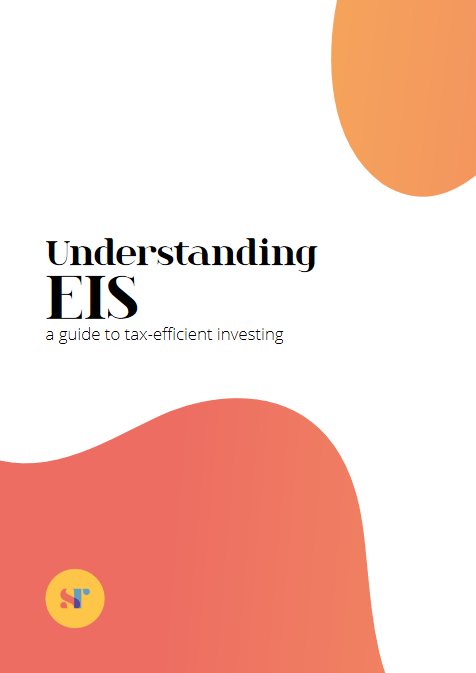Believe it or not, some investors are as eager to see positive social and environmental change as they are to increase their personal wealth. A 2018 US Trust survey found that 87% of millennial investors believe that environmental, social, and governance (ESG) factors should play a role in investment decisions. A report by Morgan Stanley‘s Institute for Sustainable Investing found that millennials are twice as likely as the overall investor population to invest in companies targeting social or environmental goals.

Welcome to the world of impact investing.
In 2020, according to the Global Impact Investing Network, the market was worth $715 billion: 42% more than 2019. Clearly, something significant is happening. A growing number of younger investors are choosing to invest in companies that stand to have a positive impact on the world, whether it’s clean energy, sustainability, or social change.
“As a young investor, I believe in the power of tech solutions to solve issues from everyday dilemmas to more pressing issues like the climate crisis,” Alice Azzarelli, a VC investor, said in an interview with UKTN. “Young people are building a better world.”
Confronting crypto.
While investing in cryptocurrency certainly has its appeal – high stakes, the potential for sudden spikes in value and huge returns, ease of access via mobile apps, and the ability to sell at any time – it’s arguable whether this is the best choice of investment either for its return potential, or its social and environmental impact. Putting the potentially criminal uses of an unregulated, untraceable currency (weapons and drugs trafficking, money laundering, contract killing) to one side, a major issue with cryptocurrency is the harm it does to the environment through the ‘mining’ process.
Crypto mining is a slightly misleading metaphor: in fact the process is a kind of computational auditing, where transactions are verified and new coins created through solving highly complex mathematical puzzles. Unfortunately for the environment, the process requires an enormous amount of electricity.
According to the Cambridge Bitcoin Electricity Consumption Index, the global Bitcoin mining network consumes 133.68 TWh per year. That’s slightly more than the annual energy consumption of Sweden (131.80 TWh/year) and slightly less than Malaysia (147.21TWh/year). Even worse, as cryptocurrency becomes more mainstream, and more and more people try their luck at mining, this is a number that will continue to increase.
This is not to say that cryptocurrency is all bad: in many ways it’s a compelling step forward which stands to make a positive impact. But its downsides are hard to ignore.
Get your free guide to EIS

Want more information on EIS tax reliefs?
Download your copy of our free guide. Featuring an analysis of UK investor trends, investment case studies and an EIS cheat sheet.
Impact investing through venture capital.
Simply put, venture capital investing gives investors the opportunity to support companies with values and objectives that align with their own, making it particularly attractive to millennials. In many cases, these small businesses are setting out to disrupt the commercial status quo, developing new technologies and products that facilitate a positive social impact or a more sustainable energy infrastructure. For example, British business Zeigo is a climate-tech platform that facilitates the procurement of renewable power, while Oceanium develops healthy products using sustainably-sourced seaweed, improving health and food security in the process.
Venture capital investing, like cryptocurrency, is a high risk investment. A sizeable proportion of small businesses fail, and it’s entirely possible to lose money when investing. However, on the flipside is the promise of considerable returns, and the satisfaction of knowing your money has the potential to make a positive impact.
Where to start?
If you’re looking to get started in venture capital investing, a great place to start is EIS. This is a government scheme that incentivises investment in early-stage small businesses with generous tax reliefs, including relief on income tax, capital gains tax and inheritance tax. While for many venture capital funds the initial investment can be high, in the tens or hundreds of thousands, you will find EIS funds with a lower minimum, in some cases as low as £5,000. The Access EIS fund, operated by SyndicateRoom, starts at £5,000, and it’s an excellent choice to get started with thanks to its innovative diversification and co-investment model.
Instead of investing in a small number of companies considered likely to succeed, which in practice is an extremely difficult thing to predict, Access EIS builds a large portfolio of more than 50 companies, to spread the risk more widely, and ideally invest in a large enough portion of the UK startup market to capture its reasonably stable annual growth rate of 28%. On top of this, it works alongside experienced angel investors with a track record of success (an average IRR of more than 41%) for its deal discovery, co-investing with them to build a stellar portfolio that’s been thoroughly scrutinised with expert due diligence.
If you’re an investor, millennial or not, interested in the chance for significant returns through investment in companies that stand to make a positive impact in the world, follow the link to read more about Access EIS, and make an investment if it’s for you. It’s possible that your £5,000 could play a part in making the world a better place.
Register to learn
more about our data,
fund and venture capital

